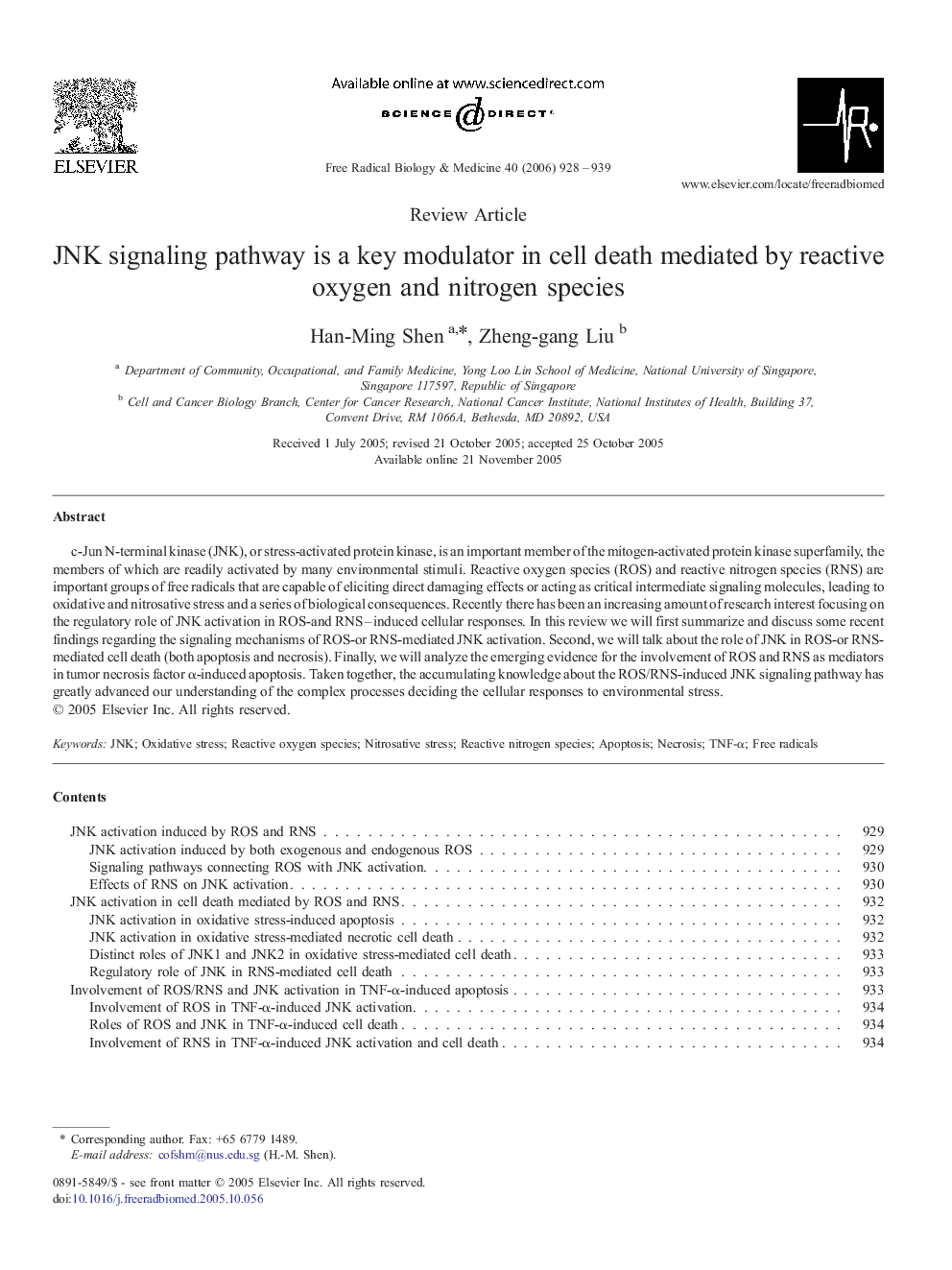| Article ID | Journal | Published Year | Pages | File Type |
|---|---|---|---|---|
| 1911672 | Free Radical Biology and Medicine | 2006 | 12 Pages |
c-Jun N-terminal kinase (JNK), or stress-activated protein kinase, is an important member of the mitogen-activated protein kinase superfamily, the members of which are readily activated by many environmental stimuli. Reactive oxygen species (ROS) and reactive nitrogen species (RNS) are important groups of free radicals that are capable of eliciting direct damaging effects or acting as critical intermediate signaling molecules, leading to oxidative and nitrosative stress and a series of biological consequences. Recently there has been an increasing amount of research interest focusing on the regulatory role of JNK activation in ROS-and RNS–induced cellular responses. In this review we will first summarize and discuss some recent findings regarding the signaling mechanisms of ROS-or RNS-mediated JNK activation. Second, we will talk about the role of JNK in ROS-or RNS-mediated cell death (both apoptosis and necrosis). Finally, we will analyze the emerging evidence for the involvement of ROS and RNS as mediators in tumor necrosis factor α-induced apoptosis. Taken together, the accumulating knowledge about the ROS/RNS-induced JNK signaling pathway has greatly advanced our understanding of the complex processes deciding the cellular responses to environmental stress.
